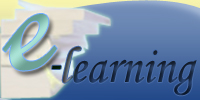(a) Some of the weaknesses observed on the candidates’ scripts included:
(1) Incorrect interpretation of the scale of the map: Some of the candidates could not
properly correlate the ratio scale to distances on the map. Consequently, they drew wrong outlines which were either too short or too long. This made them
lose precious marks.
(2) Incomplete coverage of the syllabus: From the candidates’ responses, it could be deduced that some of the candidates did not cover the syllabus as evidenced by their inability to explain basic concepts in climatology like annual range of temperature, mean annual temperature, Greek system of climatic classification etc.
(3) Misinterpretation of questions: Some candidates misinterpreted some of the questions e.g. the question that required description of the characteristics and mode of formation of dyke and composite cones were treated generally by some candidates as if it had demanded for the processes of vulcanicity, while the question requiring problems resulting from water pollution was treated as if it demanded for general environmental pollution.
(4) Wrong spellings: Some candidates mis-spelt some of the planets and other key words like magma.
(5) Avoidance of questions involving calculations: Some candidates avoided calculation related questions.
4. SUGGESTED REMEDIES TO CANDIDATES’ WEAKNESSES
The following remedies are suggested in order to address the observed weaknesses on the candidates’ scripts:
(1) Practice with topographical maps: Schools should purchase topographical maps for their students so that the students should do some practical work with such maps so that they familiarize themselves with the human and physical features on such topographical maps before the examination begins.
(2) Early preparation: Candidates are advised to start preparing for the examination early so that they could fully cover the syllabus before the examination begins.
(3) Careful reading of the questions: Candidates should carefully read the questions, understand the demands of the questions and take note of the rubrics before attempting the questions.
(4) Constant reading: Constant reading will help students to familiarize themselves with geographical terms well ahead of the examination. This will keep them from making spelling mistakes in key geographical terms.
(5) Practice with calculation related questions: Candidates should practice measurement of distances, calculation of areas and other questions involving calculations so that they will get used to solving mathematics base questions.



